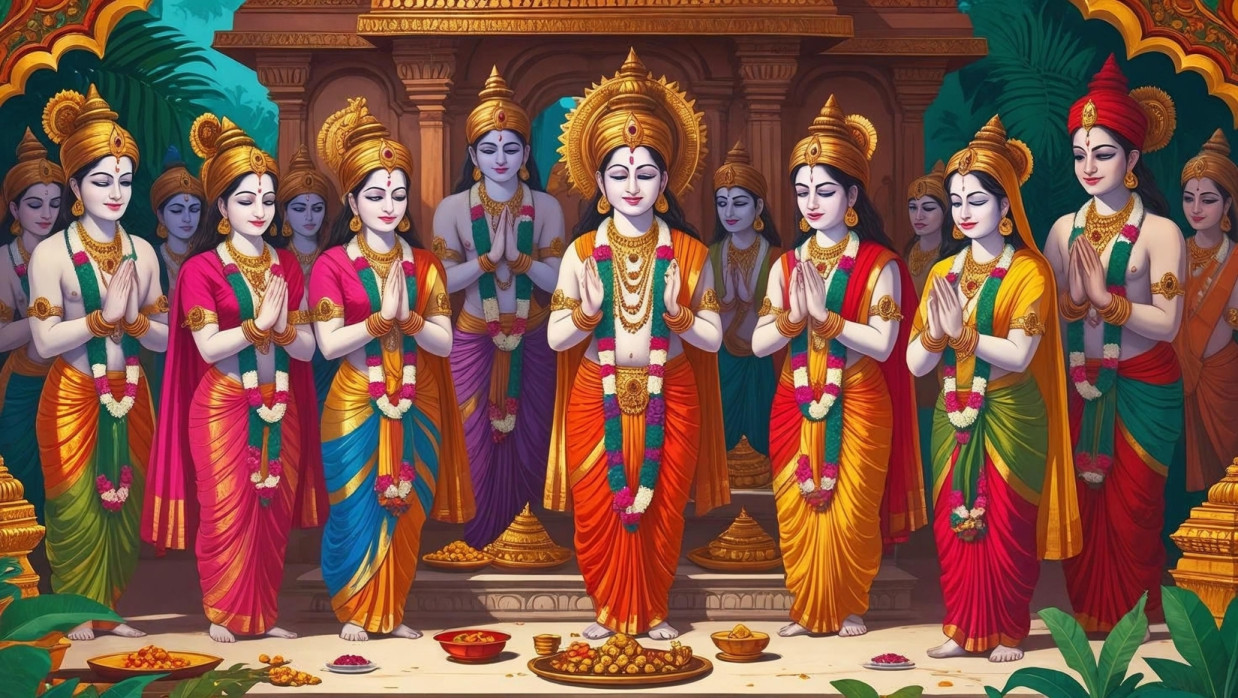
No, Hindus Don’t Worship 330 Million Gods: Understanding the Divine in Hinduism
- ১৩ মে ২০২৫, ১২:৩৫

Have you ever heard that Hindus worship 330 million gods? It’s a jaw-dropping number that sparks curiosity, but it’s also one of the most common misconceptions about Hinduism. This ancient religion, practiced by over a billion people, is far more nuanced and fascinating than this myth suggests. Let’s dive into the truth about how Hindus view the divine.
At its core, Hinduism often centers on one supreme God, frequently referred to as Brahman, the ultimate reality. Deities like Brahma (the creator), Vishnu (the preserver), and Shiva (the destroyer) form the Trimurti, representing different aspects of this single divine essence. Other beloved deities, such as Ganesha (remover of obstacles), Lakshmi (goddess of wealth), and Saraswati (goddess of knowledge), are also seen as manifestations of Brahman. This allows Hindus to connect with the divine in ways that resonate personally, whether through devotion to a single deity or many.
So, where did the “330 million gods” idea come from? It likely stems from a misinterpretation of the Sanskrit term “Koti,” which can mean “type” or “ten million.” Ancient Hindu texts, like the Vedas, mention 33 types of gods, but over time, this was exaggerated into millions. A 2019-2020 Pew Research Center survey found that 61% of Indian Hindus believe in one God with many manifestations, while only 7% view Hinduism as polytheistic. This shows that the majority see the divine as unified, not fragmented.
Hinduism’s diversity is its strength, offering countless ways to approach spirituality. Whether it’s praying to Ganesha for success or Vishnu for protection, these practices reflect a singular divine essence. So, next time someone mentions 330 million gods, you can share this fun fact: Hinduism celebrates one God in many forms, making it a beautifully inclusive faith.